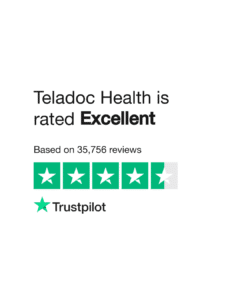Buyers these days have higher expectations and increasingly rely on trust to determine who they buy from. In other words, they are likely to base their buying decision on recommendations from friends or online reviews to see what other organisations say about a service.
At Teladoc Health UK, we proactively survey our virtual healthcare users, which picks up many great case studies and feedback. In turn, we provide these to our clients, ready-to-use with their branding. Our ready-to-go case studies are usually written testimonials and/ or videos. Sounds great, but how useful is this information?
We examine the importance of case studies for large organisations and how they can use them most effectively.
What are case studies?
Case studies are an efficient way to demonstrate a service and persuade more utilisation. It’s a super helpful tool to “brag” about a successful implementation, the value people are getting from virtual care, or a problem it has solved.
Why should large organisations use case studies?
It tells a story
A good case study will discuss a challenge or requirement that was resolved. Great case studies are filled with images and customer quotes that amplify the story and make it more compelling.
It builds your reputation
Case studies help your company build credibility, which convinces prospective customers, members, and policyholders to try your service. Case studies published on your website or shared on social media act essentially as a customer review where positive comments and experiences build your company’s credibility.
It demonstrates success
The whole point of a case study is to illustrate how your service looks in action. Case studies can show potential users with similar challenges how they can get the same results.
6 simple ways to use case studies
- Website: Publish case studies on a dedicated website page and add a shortcut to the latest case studies on your home page
- Sales material: Use case studies as part of sales materials in PDF format or email campaigns
- Product pages: Use case studies on product or service pages with a CTA to download and collect user information
- Blogs: Write blogs about your case studies and share them on social media
- Landing pages: Use case studies on landing pages to help convince potential customers, members, policyholders
- Social media: Share short video case studies
To find out how we partner with our clients to amplify their brands, please click here.









